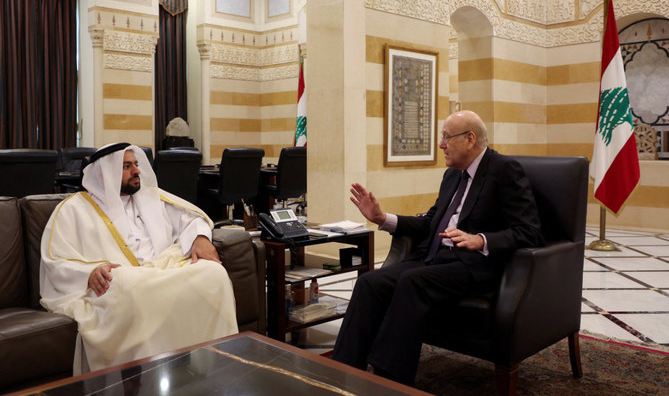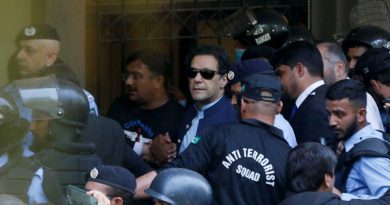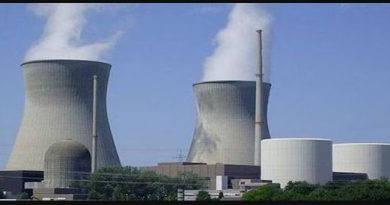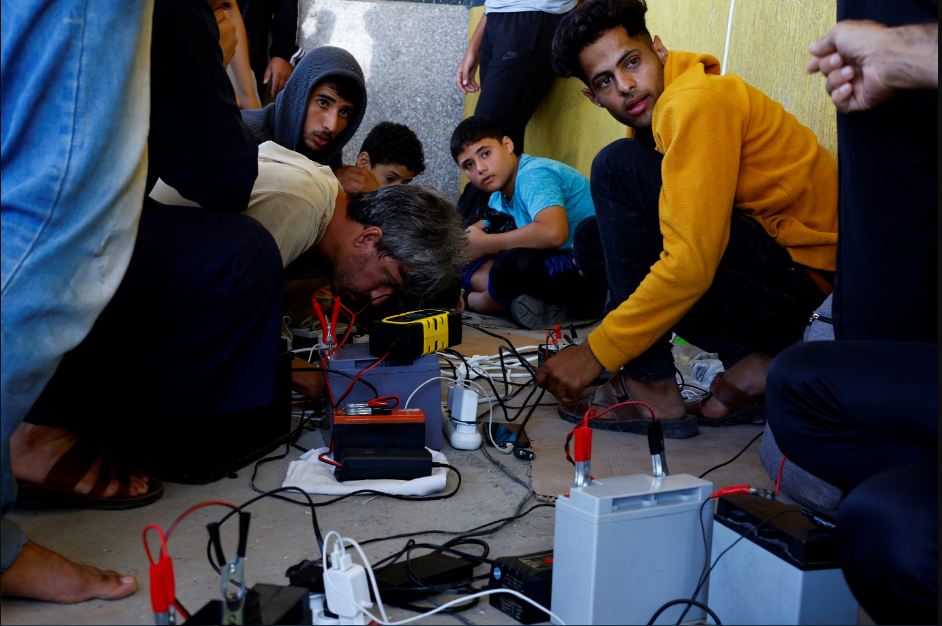Exploring Lebanese leaders’ perspectives on the next president is a Qatari envoy
Beirut – Najib Mikati, the caretaker prime minister of Lebanon, met with Mohammed bin Abdulaziz bin Saleh Al-Khulaifi, the assistant foreign minister of Qatar’s regional affairs, on Monday and commended his country for its assistance in assisting Lebanon through its political and economic crises.
During her discussions with the visiting Qatari envoy, Mikati also emphasised the close links between the two countries.
According to his media office, Mikati thanked Qatar “once again for supporting the Lebanese army and enabling it to carry out its duties.”
The official from Qatar is in Lebanon as part of a French-Arab-American initiative to find answers to the country’s ongoing presidential crisis, which has now lasted six months and involved 11 unsuccessful voting sessions in Parliament.
While this is going on, MP Suleiman Frangieh, the nominee put forth by Hezbollah and its allies, is being rejected by the Free Patriotic Movement, the Lebanese Forces, the Lebanese Kataeb, and the Progressive Socialist Party.
According to his media office, Mikati spoke with Al-Khulaifi about the situation in Lebanon and the interim administration’s attempts to address urgent situations as allowed by the constitution.
He continued, saying that the election of a president as quickly as possible is the key to ending the crises that are affecting Lebanon.
Al-Khulaifi also met with the Maronite Patriarch Bechara Boutros Al-Rahi, the Parliament Speaker Nabih Berri, the interim Foreign Minister Abdallah Bou Habib, the Grand Mufti Sheikh Abdul Latif Derian, and the leader of the Kataeb Party, MP Sami Gemayel.
Later, in the presence of Wafiq Safa, the director of Hezbollah’s Coordination and Liaison Unit, he met Hussein Khalil, the political advisor to Hezbollah Secretary-General Hassan Nasrallah.
Gemayel stated that the Qatari group was exploring viewpoints and attempting to comprehend the truth of the situation in Lebanon after his meeting with Al-Khulaifi.
“The delegation expressed its openness and readiness to discuss its positions and is putting itself at the disposal of Lebanon to assist it in full coordination with Saudi Arabia and the Gulf countries.”
Gemayel emphasised that Saudi Arabia and Qatar will always support Lebanon and protect it from unwarranted foreign meddling.
In the February 6 five-party meeting in Paris to discuss the Lebanese problem, which also included France, Saudi Arabia, Egypt, and the US, Al-Khulaifi represented Qatar.
When the Doha agreement was reached between Lebanese political forces in 2008, ending an 18-month presidential void, Doha had earlier helped to ease Lebanon’s previous crises.
The majority-Christian opposition in Lebanon is wary of the assurances that Hezbollah’s presidential candidate can offer and has his reservations about his ability to uphold them in light of past failures.
Hezbollah and its political team had previously promised in the Doha agreement not to overthrow the government, but in 2010 they deployed their members to Beirut and threatened to impose Mikati as prime minister in place of the then-returning Saad Hariri as head of the government in 2012.
The source continued: “Hezbollah and its team agreed in the Doha agreement to dissociate themselves from the conflicts in the region in 2012, but they later reversed course by involving Lebanon in the Syrian war, interfering in Yemen, and starting campaigns against Saudi. In the meantime, Hezbollah ally and former president Michel Aoun, who had promised to take an autonomous stance, became the party’s protector.
“The presidential crisis is not a Christian one, but rather a reflection of a major national crisis represented by Hezbollah’s attempt to impose its will on the Lebanese when it comes to the presidency, and in the choices of the state as a whole, because Lebanon is under Iranian occupation,” the Lady of the Mountain gathering, which opposes Hezbollah, said on Monday.
Municipal elections are slated to take place in Lebanon in May. Elections last year were delayed because they fell on a legislative election day.
Even though interim Interior Minister Bassam Mawlawi set the election date for May on Monday, he added that whether or not the required money can be raised will determine whether or not the elections can actually be held.
“The UNDP is contributing to some of the cost of holding the elections, but there are costs that the state must secure, even if it means using Special Drawing Rights, or SDRs, from the International Monetary Fund,” Mawlawi said.



